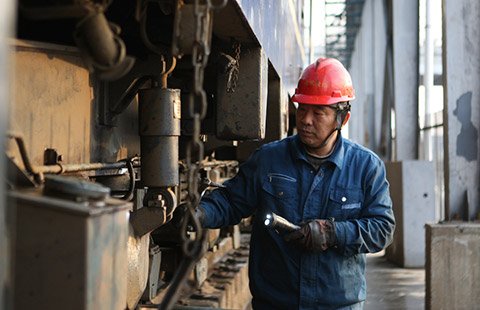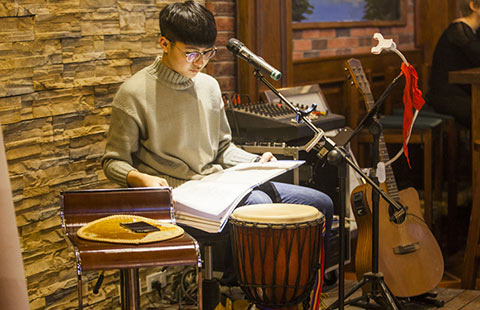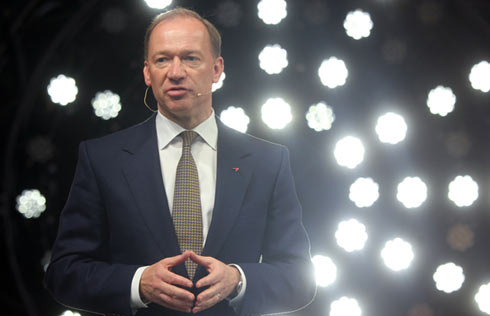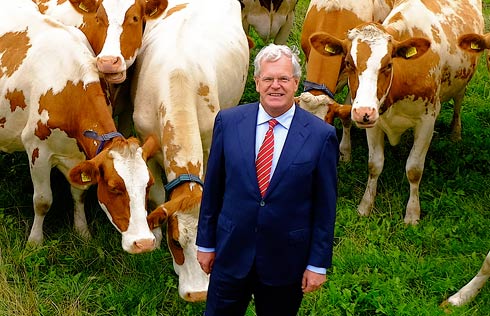Xi's Davos visit shows Chinese wisdom, confidence
Envisioning future
Geneva, one of the most important centers for multilateral diplomacy in the world, witnessed new China's debut on international arena in 1954 when late Premier Zhou Enlai led a Chinese delegation to attend the Geneva Conference and fought for peace to the widespread praises from around the world, Wang said.
Xi's visit to the UN Office at Geneva (UNOG) was not only the first by a Chinese head of state in the 21st century, but also a significant move of China's multilateral diplomacy, said Wang.
After his attendance at a series of events marking the 70th anniversary of the United Nations in 2015, the Chinese leader once again sent a clear message to the world that China is behind the world body and is a strong supporter of multilateralism, he said.
During the visit to the UNOG, Xi met Peter Thomson, president of the 71st UN General Assembly and UN Secretary-General Antonio Guterres, and delivered a keynote speech at the Palace of Nations.
With a vision on the future and destiny of mankind and the trend of the development of times, Xi expounded the concept of building a community of shared future for mankind, which is the core of China's foreign policy in the new era, said the foreign minister.
From a historical angle, the Chinese president reviewed the principles of international relations such as equality of sovereignty, peaceful reconciliation, rule of law and justice, openness and tolerance, humanitarianism, and summarized the basic framework to be followed when the world builds a community of shared future for mankind, said Wang.
From the angle of current times, Xi pointed out the major global challenges, called for the building of a world with sustainable peace and comprehensive security, prosperity, openness and inclusion and cleanness and beauty, said the foreign minister.
From a future perspective, Xi responded to the international community's interest in China's direction by emphasizing China's determination to safeguard world peace, its commitment to promoting common development, its desire to build partnerships with other countries, and its stand in favor of multilateralism.
During his visit to the headquarters of the World Health Organization (WHO) in Geneva, Xi witnessed the signing of a memorandum of understanding between China and the WHO on health cooperation under the framework of the China-proposed Belt and Road Initiative, which was the first of its kind China has signed with a UN body. This would play a guiding and demonstrative role for other international organizations to join the initiative later on, according to Wang.
When visiting the International Olympic Committee (IOC) headquarters in Lausanne, Xi had cordial talks with IOC President Thomas Bach, saying China has already successfully hosted the 2008 Beijing Olympics and the 2014 Nanjing Youth Olympics and is preparing for the 2022 Beijing Winter Olympics.
"Xi has conveyed a clear message to the world that the 2022 Beijing Winter Olympics will be a magnificent, extraordinary, and super successful event," said Wang.
Model of inter-state relations
Wang said that Switzerland was among the first European countries to establish diplomatic ties with the People's Republic of China.
During their talks ,Xi and Swiss President Doris Leuthard explored issues of bilateral ties and common interest and agreed to maintain high-level exchanges, consolidate political trust, strengthen strategic coordination, deepen pragmatic cooperation, make more frequent and closer coordinations on international and regional issues, and join hands to safeguard world peace and stability, said Wang.
The foreign minister said that under the current turbulent international situation, the success story of Sino-Swiss cooperation shows that countries of different social systems and development stages can achieve shared and win-win development and build solid and sustainable state-to-state relations, if they respect each other and seek common ground while shelving differences.

















